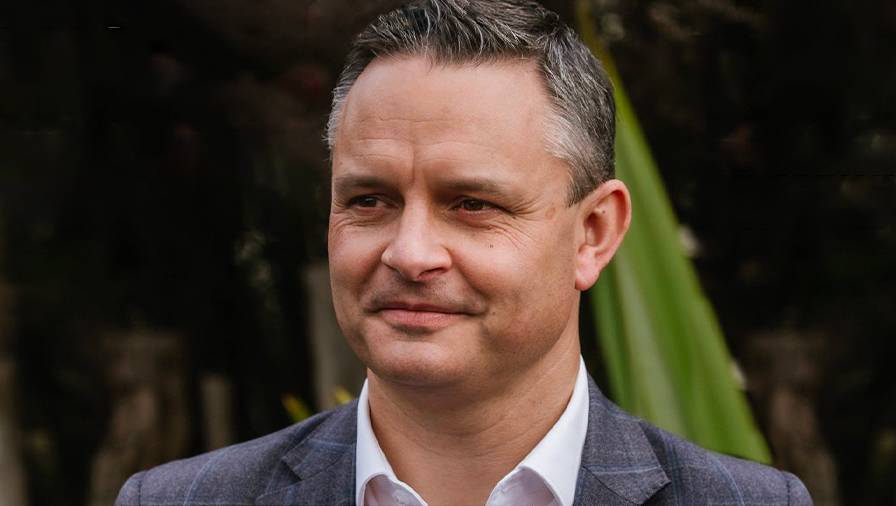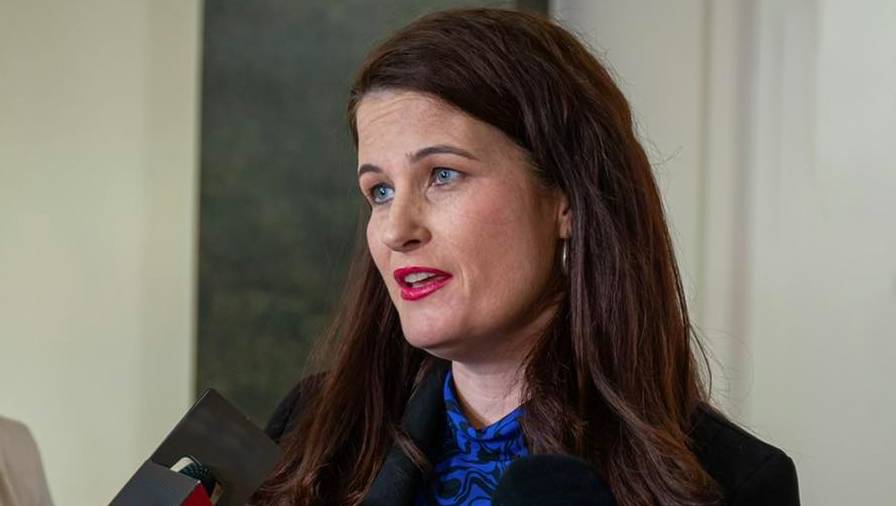

The Queen, the Greens, the economy, the electoral system
ANALYSIS: Grant Robertson optimistic about economy after 1.7% rise in GDP in the June quarter.
NBR political editor Brent Edwards speaks with Grant Walker.


ANALYSIS: Grant Robertson optimistic about economy after 1.7% rise in GDP in the June quarter.
NBR political editor Brent Edwards speaks with Grant Walker.
Much of the past week has been taken over by the death of Queen Elizabeth II and the preparations for her funeral.
In New Zealand, we get a public holiday in a little over a week’s time on the day a commemoration service will be held here. Prime Minister Jacinda Ardern will be back for that, having travelled to London this week to attend the Queen’s funeral on Monday. From there she flies to New York for the United Nations General Assembly before returning home.
While the Queen has dominated the headlines, over the weekend – almost unnoticed – James Shaw was re-elected Green Party co-leader after enough party delegates had earlier voted to reopen nominations for his position. Despite some commentators suggesting his position was under serious threat, Shaw was convincingly returned as co-leader in the new vote.
He has used the challenge to reassert his Green credentials, aware some within his party are frustrated by the progress on climate change being made under this majority Labour Government.
Shaw has made the point that if people want more progress, they have to elect more Green MPs to Parliament as well as elect more Green candidates as councillors in next month’s local body elections. He was also quick to support fellow co-leader Marama Davidson’s critical comments about the monarchy when she spoke in Parliament on Tuesday to mark the death of the Queen.
James Shaw is back as Green Party co-leader.
But when it comes to climate change, Shaw and the Green Party face a tough task. New Zealand has flattened the emissions curve but not yet put a serious dent in it. And worldwide preliminary data suggests global carbon dioxide emissions in the first half of this year were 1.2% higher than for the same period in 2019.
In a piece of good news, this week’s GDP figures for the three months to the end of June surprised most economists by recording 1.7% growth. The Reserve Bank had predicted 1.8%.
Statistics New Zealand reported that services industries, which make up two-thirds of the economy, were up 2.7%, largely due to the reopening of borders and the easing of both domestic and international restrictions.
That presumably should flow through to the September quarter and beyond as summer tourism starts to build momentum. It should also be given more impetus by the Government’s announcement this week that the traffic light system has been dropped, with most mask mandates now in the past. Masks must now only be worn in health and aged care facilities and only people with Covid-19 must isolate for seven days.
In the UK, Ardern might note the state of the British economy and how it compares with New Zealand. As CTU economist Craig Renney observed, New Zealand’s 1.7% GDP growth in the June quarter compares with declines of 0.1% in both the UK and the United States. New Zealand also outperformed Australia, Canada, Japan, and the 19 countries that make up the Euro area. The OECD average for the quarter was 0.4%.
High inflation is hurting households around the world and in Europe rising energy prices – the cost of the Russian invasion of Ukraine – are hurting even more. So, in New Zealand it could be worse.
But it is still not time to celebrate. Inflation remains problematic and the 1.7% quarterly rise in GDP is only likely to firm the Reserve Bank’s view that more interest rate rises are needed.
The Reserve Bank is still likely to keep raising interest rates.
Tough times still lie ahead, particularly for those with large mortgages as interest rates rise further.
Finance Minister Grant Robertson remains optimistic though, pointing out the New Zealand economy grew at a time when the International Monetary Fund estimated global output had shrunk.
“More people are in work, wages are outpacing inflation, and our economy is stronger than it was before the pandemic started, while the Government’s books are in good shape,” Robertson said.
He said the economy was now 5% larger than before the pandemic hit and the country was positioned to face the challenges ahead, including global inflation, the war in Ukraine, and ongoing pandemic-related disruptions to trade.
National Party finance spokesperson Nicola Willis had a different take on Thursday’s GDP figure, pointing out the economy only grew 1% in the year to the end of June.

National Party finance spokesperson Nicola Willis.
“While it is welcome that New Zealand has so far avoided a recession, weak growth comes as inflation remains at the highest rate in a generation,” Willis said.
And she disputed Robertson’s comments on wages, saying most Kiwis were going backwards as their wages were unable to keep up with rising prices.
That debate on the state of the economy will run through until next year’s election and just how Kiwis feel about their personal economic circumstances will likely influence their vote.
Meanwhile, this week the Electoral Review Panel opened for public submissions on what changes should be made to the electoral system. This is a far-reaching review that will look at the age of voting, the term of Parliament, MMP thresholds, and electoral finance rules. It is looking at many of the proposals put forward by the Electoral Commission in 2012, which were largely ignored by the then National-led Government.
The review panel is not due to report back until November next year so none of its recommendations will have any effect on the 2023 election. The Government is, though, already pushing through some changes to electoral finance rules in an effort to make political donations more transparent in time for next year’s election.
That has provoked opposition from National and Act, who accuse Labour of trying to screw the scrum in its favour.
Next week will be a big one on the world stage for Ardern, as she attends the Queen’s funeral and the UN leaders’ week. Back home MPs will have to pass legislation for the one-off public holiday on Monday, September 26, to mark the Queen’s passing.
That has upset the Act Party and some within the business community. Ardern says it will be an opportunity for all New Zealanders to pay their respects to the Queen; however, it is more likely people will either be shopping or holidaying at the beach.
Brent Edwards is NBR’s political editor.
Sign up to get the latest stories and insights delivered to your inbox – free, every day.